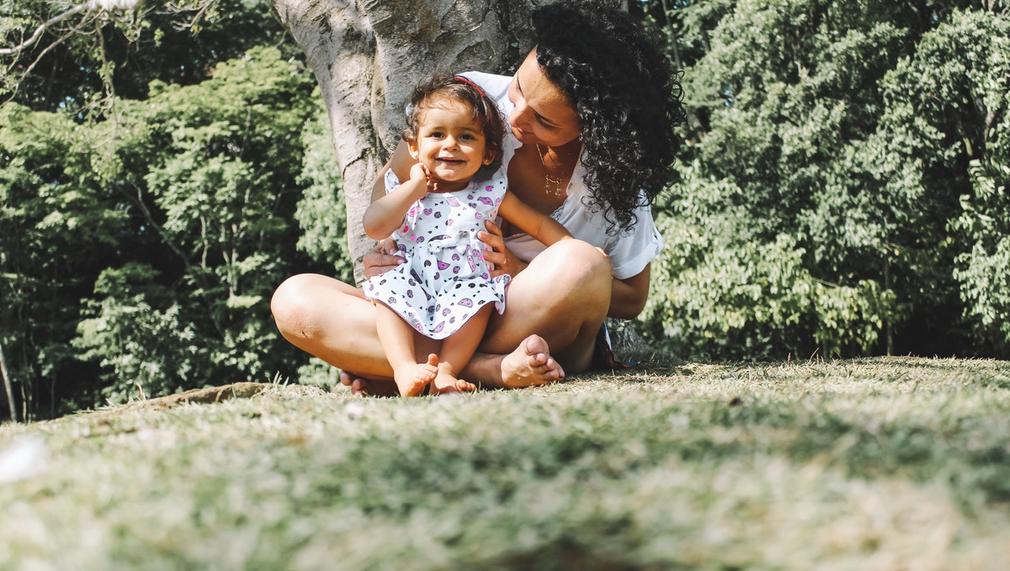SANA SANA (Heal, Heal)
Maternal Mental Health NOW’s SANA SANA perinatal peer support project aims to reduce stigma, relieve symptoms, and help birthing people struggling with mental health and/or emotional challenges during pregnancy and/or postpartum period across Los Angeles County navigate the perinatal mental health care system.

What is the primary issue area that your application will impact?
Social support networks
In what stage of innovation is this project, program, or initiative?
Expand existing project, program, or initiative (expanding and continuing ongoing, successful work)
What is your understanding of the issue that you are seeking to address?
Perinatal mood and anxiety disorders are the leading complication of childbirth. According to the Los Angeles Mommy Baby (LAMB) survey, 23.1% of birthing people experienced postpartum depression and 27.6% suffered postpartum anxiety in 2018, with highest rates amongst Black birthing people - 33% and 27.6% respectively. LGBTQI populations also have increased rates of PMADs. A study by the AAMC Center for Health Justice found that 51% of LGBTQI birthing people reported bias or discrimination in their care, compared to 37% of the general population. Left untreated, perinatal mood and anxiety disorders have devastating short- and long-term consequences for the birthing person, their partner, the newborn and developing child, including maternal and infant mortality. Despite the prevalence and lethality of perinatal mood and anxiety disorders, only 25% of those who are struggling receive treatment and care.
Describe the project, program, or initiative this grant will support to address the issue.
MMHN’s SANA SANA perinatal peer support program (available in English and Spanish) is designed to help LA County’s birthing people receive the perinatal mental health care they need, when they need it and in the form that they want it. Research has demonstrated that peer support is a cost effective means for reducing depression, particularly in marginalized populations. In April 2023, Maternal Mental Health NOW introduced SANA SANA, a perinatal peer support program which aims to help the estimated 29,380 birthing people in Los Angeles County who are affected by perinatal mental health disorders reduce stigma, relieve symptoms, and navigate the perinatal mental health care system. Peer supporters, who are individuals with first-hand experience with perinatal mental health challenges and have completed certification training on peer support, are staffing a toll free phone number, 1-888-823-SANA, Monday-Friday, 9AM-5PM. When receiving a call, text message, or email, perinatal peer supporters conduct an intake assessment of the birthing person, provide them with individualized coaching and educational skill building, and utilize MMHN’s community-driven resource directory, mmhn.streetwyze.com, to find local holistic perinatal mental health care and wraparound resources. MMHN’s peer supporters also facilitate a free, weekly support group for members of Los Angeles’ queer community who are planning to, in the process of, or have recently welcomed a new baby into the family.
Describe how Los Angeles County will be different if your work is successful.
As a result of MMHN’s SANA SANA perinatal peer support program, all of LA County’s birthing people will have access to a free resource to help them navigate the emotional challenges that accompany welcoming a new baby into the home. Those that call 1-888-823-SANA and speak to a peer supporter will report a reduction in symptoms of anxiety and depression. They will also report that they have been connected to the holistic resources they need, whether that is stable housing, education, child care, financial resources, etc. Attendees of My Queer Parenting Journey support group will report that they feel higher levels of social support. With increased program utilization, MMHN will hire and train more peer supporters, respond to a larger volume of calls and provide free weekly support groups tailored to members of specific populations and/or experiences (i.e. Black birthing people, grief and loss, NICU stays, etc.).
What evidence do you have that this project, program, or initiative is or will be successful, and how will you define and measure success?
In the first 15 months of MMHN’s SANA SANA program, our peer supporters have had 125 interactions with perinatal clients and a total of 76 birthing people and partners have attended a My Queer Parenting Journey support group. 100% of SANA SANA callers have reported that the program has somewhat helped reduce their symptoms of anxiety and depression and connected them to the resources and support they were looking for. One respondent noted: “Durga was a great listener and provided a safe space for me to share my feelings.” Additionally, 100% of support group participants have reported that the group has made them feel more supported. One participant shared: “The facilitators do a good job of making sure everyone is able to participate and have their needs met and a chance to talk about what is going on in their lives and their kids' lives.”
Approximately how many people will be impacted by this project, program, or initiative?
Direct Impact: 250.0
Indirect Impact: 1,000.0